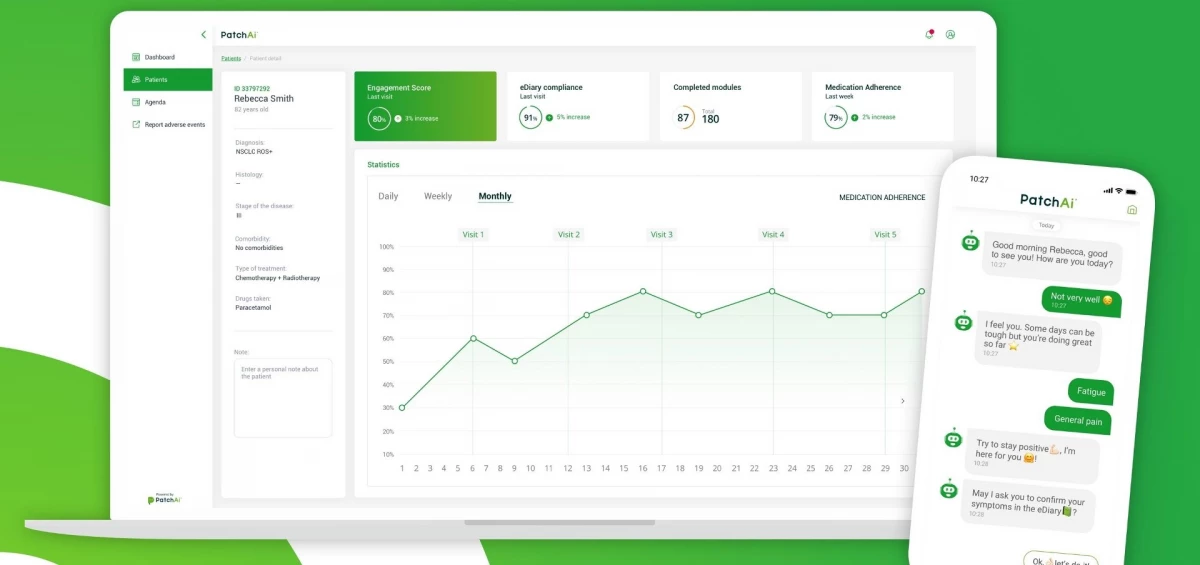The Italian startup PATCHAI and the Pharmaceutical Firm Roche presented a new development - a virtual "assistant", which works with oncological patients and improves care. The Patchai For Smart Health Companion (SHC) system is available on iOS and Android as a mobile application and includes a chat bot based on an artificial intelligence algorithm that helps the patient to organize proper self-service and collects the relevant data for medical records that doctors can view As they continue to treat the patient at home. Currently, the system is focused on patients with blood cancer and hematological diseases.
A virtual assistant can start a conversation with a patient about his physical and mental health. The system helps the patient to track and record the chart of taking drugs, the power plan and overall patient well-being. All information is organized in the form that medical workers may include in a patient's medical card, which reduces the time required for routine interviews and paper work, and at the same time provides more data to personalize treatment.
The chat is used by the machine learning algorithm to adapt the interactions and improve how it holds that Patchai calls "empathic conversations" with the patient.

Roche and Patchai tested the SHC platform in July last year during a successful pilot project, after which it officially debuted this month. Early results suggest that Patchai will be a great help for long-term care of cancer patients. Up to 95% of patients using Patchai adhere to their care plans, which is nine times higher than when using traditional programs based on paper instructions.
The amount of medical care with the help of artificial intelligence has expanded over the past years, but the CAID-19 pandemic significantly accelerated this process, since medical workers used chatbots and voice systems based on artificial intelligence to manage the load on their resources. The number of virtual assistants specializing in coronaviruses, which respond to questions and perform patient sorting, as well as financing and acquiring startups developing relevant technologies such as Saykara and Suki. Both of these companies specialize in systems using artificial intelligence and voice technologies to assist in the compilation of clinical documentation. With the help of such solutions, the doctor can talk about the needs of the patient in the process of receiving the patient or after his visit, and the system then independently document all the doctor said. In addition, these systems are already integrated into several most common electronic medical card systems.
Another voice technology developer Nuance was in demand to develop a multi-channel platform of virtual assistants for medical institutions.
